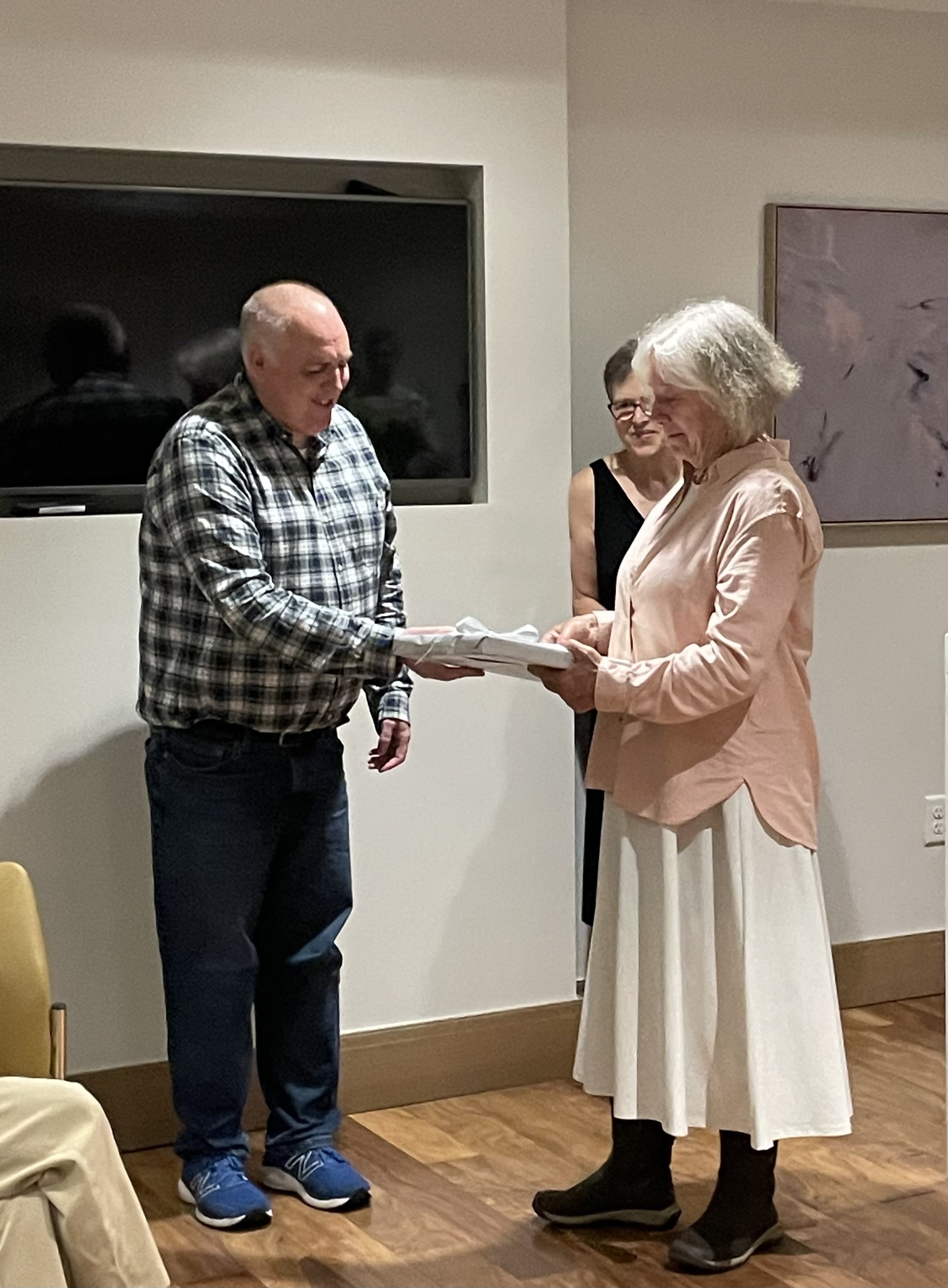FOSEL Representatives Testify Before City Council
FOSEL President, Yvette Jarreau
On Wednesday, April 24th, FOSEL’s founder, Marleen Nienhuis, and its current president, Yvette Jarreau, testified at a hearing of the Boston City Council’s Committee on City Services and Innovation Technology at City Hall to put forward a community wish-list of building elements they would like to see incorporated into the new Library and to propose better public engagement by BPL leadership.
Jarreau began by reminding the Committee that the South End Branch, the only local institution that serves the entire neighborhood, has been closed for nearly four years, and that the loss has been keenly felt. She said:
[W]ithout a building, the staff cannot offer programs such as book pick up and drop off, WIFI, tax preparation help, homework help, art and crafts classes, computer access, copying, book sales, Local/Focus exhibits, art displays, job search classes and support, author talks, panel discussions on topics of community interest or concern, to name a few.
Without a building our residents cannot interact with each other or Library staff on a regular basis. A whole cohort of young kids are growing up without the joys of library experiences such as reading for pleasure in a safe setting with staff support.
Without a building we have not had fee-free space in the South End for neighborhood meetings on important issues of concern to residents. We also have not been able to host holiday gatherings with food and celebration.
Noting the important role a functioning library plays at every life stage - from providing a safe and enriching place for young kids to enabling teens and seniors to connect and engage, Jarreau then requested, on behalf of FOSEL, its members, and Library users from the whole community, that following elements be included in the the new building plans:
1) Three stories instead of two;
2) A dedicated senior space for writing, computer use, connecting and using the Library’s resources;
3) A dedicated Latino/Latina space featuring computers, collections, and relevant Spanish-language resources;
4) A fully functional kitchen area to offer culinary and nutritional workshops;
5) A space for patrons to store their belongings while using the Library; and
6) A building that does not encroach on the shared alley between the Library and abutters, which is a dedicated fire lane and a right-of-way turn lane.
Nienhuis made a strong case for additional space in the new South End Branch, supporting several of the building elements proposed Jarreau. She stated:
FOSEL founder Marleen Nienhuis with City Councilor Ed Flynn at an event celebrating her many contributions to the South End Library
Most Boston neighborhoods have about 20,000 square footage of library space per 25,000 residents, sometimes divided over several branches. Yet, the South End, at 38,000 residents, is told that all they can hope for in their new library planned to open in three years is 15,000 sq. ft. That means there will be no square footage for a dedicated space for seniors, or a dedicated space for the large Latinx community abutting the Library, or for the sizeable and growing Asian community nearby, or a kitchen space to offer nutritional and culinary instruction, or storage space for belongings while using the Library, including strollers, personal possessions and walkers. Compare this with the library space available in other neighborhoods:
The Mattapan Library (21,000 sq. ft.) serves a population of 36,800; the two Jamaica Plain libraries (22,200 sq. ft.) serve a population of 37,400; the two Brighton libraries (with a combined 34,100 sq. ft.) serve a population of 48,000 residents; Hyde Park’s branch (23,000 sq. ft.) serves 35,147 people; the three libraries in Roxbury (52,550 sq. ft.) serve 60,705 residents.
Nienhuis followed up by highlighted how difficult it is for the public to get the ear of the BPL Trustees and Management to advocate for critically important services and improvements, such as convenient hours of operation, collections targeted to residents, disability access, and community room usage by neighborhood organizations, as well as discussions about renovation, new library construction and repair. She spoke from personal experience:
My experience and that of many of my library advocate colleagues is that phone calls often aren’t returned or take a long time to be returned; emails are not responded to or are merely acknowledged as having been received. The BPL Trustees (all volunteers) have no published email or phone number to contact. The public can only speak to them at the end of the quarterly meetings, and that time is limited to two minutes. Trustees are not required to answer questions, and they mostly don’t.
Moreover, she noted, the City Council's library budget hearings take place only once a year and are poorly advertised and poorly attended. On top of that, she added, budget decisions have already been made by the BPL by the time the hearing takes place and are hard to change or amend.
Nienhuis closed by proposing that the City Council require the BPL and its Board of Trustees to engage at least quarterly with the public they serve by holding update session with question and answer periods. She further proposed the creation of a City Council committee to evaluate the effectiveness of BPL leadership’s public engagement, and, if necessary, allocation of funding for additional BPL staff who can be true advocates for productive engagement between Boston residents and the BPL.


